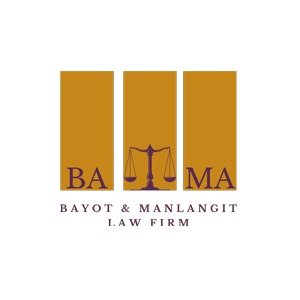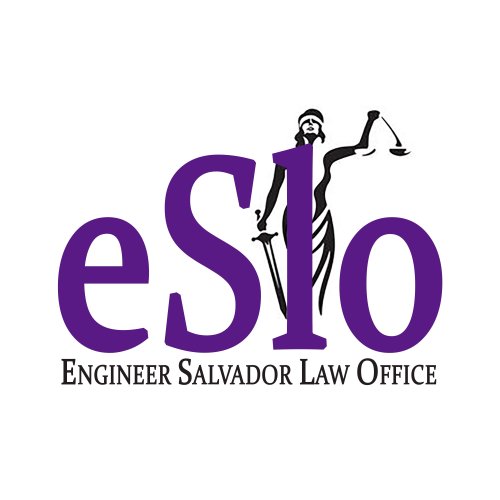Best Natural Resources Lawyers in Cavite City
Share your needs with us, get contacted by law firms.
Free. Takes 2 min.
List of the best lawyers in Cavite City, Philippines
About Natural Resources Law in Cavite City, Philippines
Cavite City, located in the province of Cavite in the Philippines, is endowed with various natural resources, including coastal areas, fisheries, and agricultural lands. The conservation and management of these resources are vital to the local economy and environmental sustainability. Natural resources law in Cavite City encompasses regulations aimed at promoting sustainable development, protecting biodiversity, and mitigating environmental impacts. It addresses issues related to land use, coastal management, fisheries regulation, and compliance with environmental standards.
Why You May Need a Lawyer
There are several situations where individuals, businesses, or organizations might require legal assistance concerning natural resources in Cavite City:
- Obtaining permits: Legal advice may be necessary for acquiring the correct permits and licenses for resource extraction, land development, or other commercial uses.
- Environmental compliance: Businesses must comply with environmental regulations, which can be complex and require expert legal interpretation.
- Dispute resolution: Conflicts may arise over land use, resource rights, or environmental impact that need legal intervention or mediation.
- Property rights: Land ownership and usage rights issues can benefit from legal clarification and defense.
- Public consultation: Engaging with communities on developments that affect their environment often requires understanding legal obligations and processes.
Local Laws Overview
The legal landscape in Cavite City is shaped by national laws integrated with local regulations designed to address specific environmental and resource management issues. Key local laws concerning natural resources include:
- Philippine Fisheries Code of 1998: Governs the use and management of marine resources, enforcing sustainable fishing practices.
- Environmental Impact Statement (EIS) System: Requires assessment of potential environmental impacts for new projects.
- Local Government Code of 1991: Grants local governments authority to enforce environmental laws and regulations within their jurisdiction.
- Cavite Zoning Ordinances: Determines land use planning and resource allocation to prevent environmental degradation.
Frequently Asked Questions
What is the process for obtaining environmental compliance certificates in Cavite?
Obtaining an environmental compliance certificate (ECC) involves assessing the environmental impact of your activity or project, submitting required documentation, and undergoing evaluations by the Department of Environment and Natural Resources (DENR).
Can I establish a business near coastal zones in Cavite?
Establishing a business near coastal zones requires adherence to zoning laws and may need a special permit. Coastal management guidelines help regulate such developments to preserve marine ecosystems.
How can I resolve a dispute regarding land ownership in Cavite?
Resolution of land ownership disputes typically requires legal assistance to verify claims, negotiate settlements, or provide representation in court proceedings.
Are there any specific regulations for fishery operations in Cavite?
Fishery operations are regulated under national and local laws that enforce sustainable fishing practices, limit catch sizes, and preserve marine biodiversity in Cavite.
What penalties are imposed for non-compliance with environmental laws in Cavite?
Non-compliance with environmental laws can result in penalties such as fines, suspension of operations, or revocation of licenses, depending on the severity of the infraction.
How do local ordinances affect agricultural practices in Cavite?
Local ordinances impact agricultural practices through rules on land use, pesticide application, water usage, and waste management to ensure sustainable agricultural development.
Do I need a permit to extract groundwater in Cavite?
Yes, extraction of groundwater typically requires a permit to protect this vital resource from overuse and contamination. Permits are managed under the National Water Resources Board (NWRB).
What is the role of the Cavite provincial government in natural resource management?
The Cavite provincial government implements and enforces regulations, coordinates with national agencies, and supports local initiatives to manage and protect natural resources effectively.
Are there protected areas in Cavite, and what activities are restricted within them?
Cavite hosts protected areas where activities like logging, mining, and certain agricultural practices are restricted to preserve biodiversity and maintain ecological balance.
What should I do if I witness illegal environmental activities in Cavite?
If you witness illegal environmental activities, you should report them to local authorities or agencies like the DENR for investigation and enforcement of applicable laws.
Additional Resources
If you seek further information or assistance, consider reaching out to the following resources:
- Department of Environment and Natural Resources (DENR): Offers guidance and oversight on environmental compliance and resource management.
- Local Government Unit of Cavite City: Provides information on local ordinances, permits, and community programs related to natural resources.
- Bureau of Fisheries and Aquatic Resources (BFAR): Manages and regulates fishery-related activities in the region.
- Philippine Environmental Management Bureau (EMB): Helps with compliance and environmental impact assessments.
Next Steps
If you need legal assistance with natural resources in Cavite City, consider the following steps:
- Consult a Lawyer: Seek legal advice from an attorney specializing in environmental and natural resources law to understand your rights and obligations.
- Contact Local Authorities: Engage with local government units or relevant agencies for specific regulatory guidance and permit applications.
- Document Everything: Maintain comprehensive records of any issues, including permits, communications, and observed activities, to support your legal position if needed.
- Participate in Public Hearings: Attend community consultations and hearings to stay informed and contribute to local decision-making processes regarding resource management.
Lawzana helps you find the best lawyers and law firms in Cavite City through a curated and pre-screened list of qualified legal professionals. Our platform offers rankings and detailed profiles of attorneys and law firms, allowing you to compare based on practice areas, including Natural Resources, experience, and client feedback.
Each profile includes a description of the firm's areas of practice, client reviews, team members and partners, year of establishment, spoken languages, office locations, contact information, social media presence, and any published articles or resources. Most firms on our platform speak English and are experienced in both local and international legal matters.
Get a quote from top-rated law firms in Cavite City, Philippines — quickly, securely, and without unnecessary hassle.
Disclaimer:
The information provided on this page is for general informational purposes only and does not constitute legal advice. While we strive to ensure the accuracy and relevance of the content, legal information may change over time, and interpretations of the law can vary. You should always consult with a qualified legal professional for advice specific to your situation.
We disclaim all liability for actions taken or not taken based on the content of this page. If you believe any information is incorrect or outdated, please contact us, and we will review and update it where appropriate.









